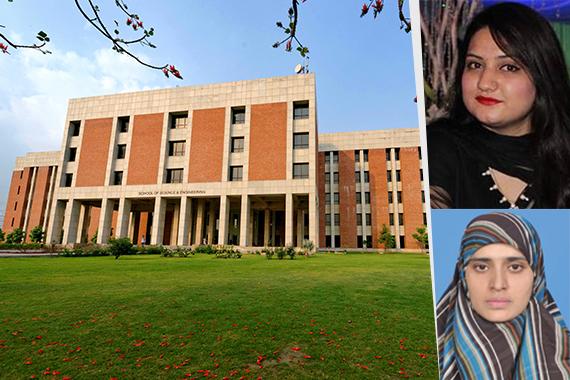
Common drug abuse practices, particularly in underdeveloped countries like Pakistan, have resulted in the development of multidrug resistance (MDR) in pathogens, which has become one of the most serious healthcare threats globally. There is, therefore, a dire need to develop non-conventional materials that can kill the pathogens in a way that limits the body’s chances of developing resistance against such antimicrobial agents. The Functional Nanomaterials Group, led by Dr. Irshad Hussain, faculty at the Department of Chemistry and Chemical Engineering, Syed Babar Ali School of Science and Engineering (SBASSE), has been working on the nanoscale engineering of metal nanoparticles to address this issue. The findings of the group have recently been published as two research articles.
Zil-e-Huma, a PhD student at SBASSE, published a research article on the design and synthesis of cationic silver nanoclusters that were found to be very effective in killing resistant bacterial strains (12 strains tested) at a very low concentration. The surface chemistry of these silver nanoclusters was designed and modulated to selectively kill the resistant uropathogens without affecting the human cells. The research was published in ACS Omega, a scientific journal published by the American Chemical Society and was selected by the editor for ‘ACS Editors’ Choice.’
In a second article, Dr. Shazia Mumtaz, a recent graduate of the Functional Nanomaterials Group, and a researcher at the University of Massachusetts (UMass), Amherst, USA, reviewed the use of nanomaterials for combatting antibiotic resistant bacteria. The tutorial review was published recently in Chemical Society Reviews, a journal ranked among the top five Science journals globally. The research was conducted in collaboration with Prof. Vincent M. Rotello at UMass. The study was supported by the LUMS Faculty Initiative Fund (FIF) and Hussain–Rotello Joint Research Project through the 'Pakistan-US Science & Technology Cooperation Program.'








